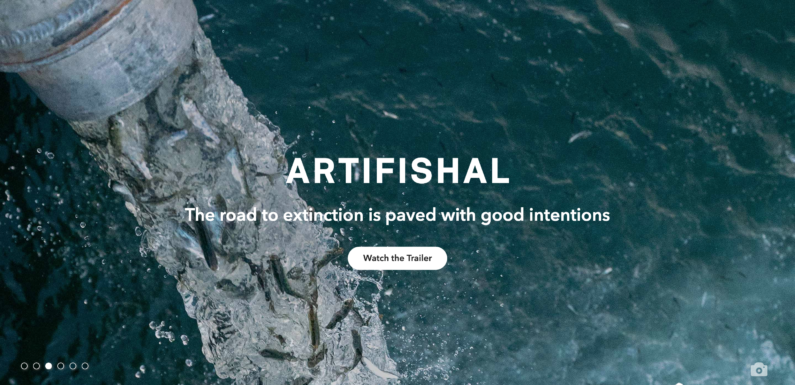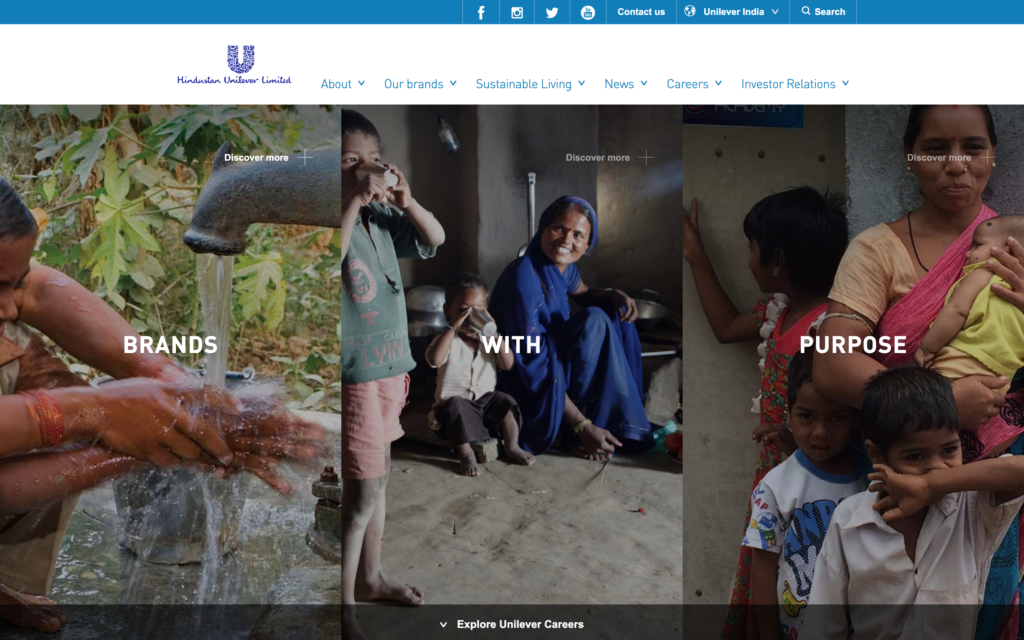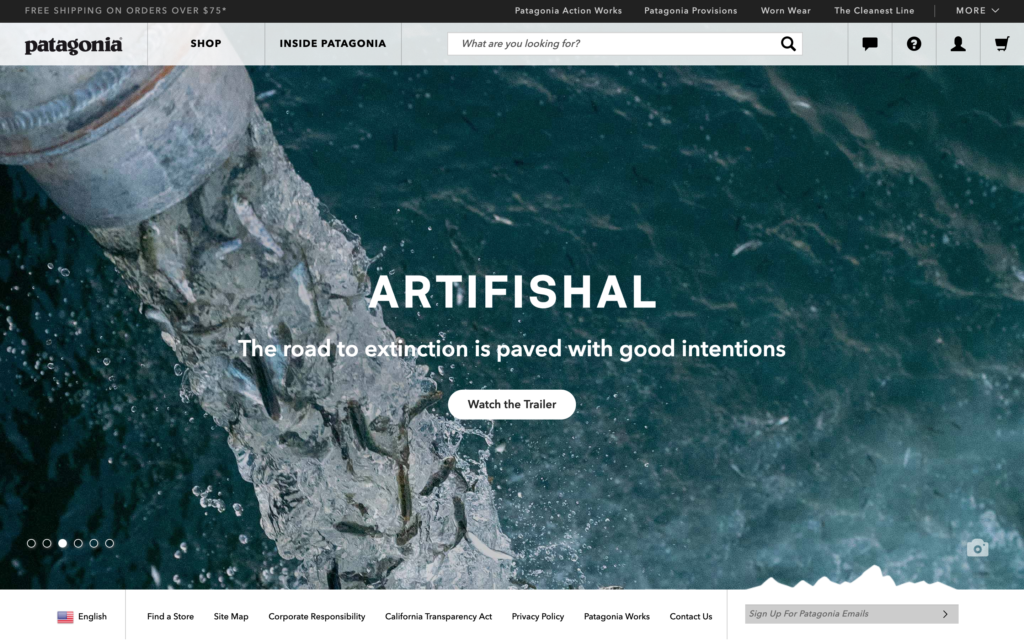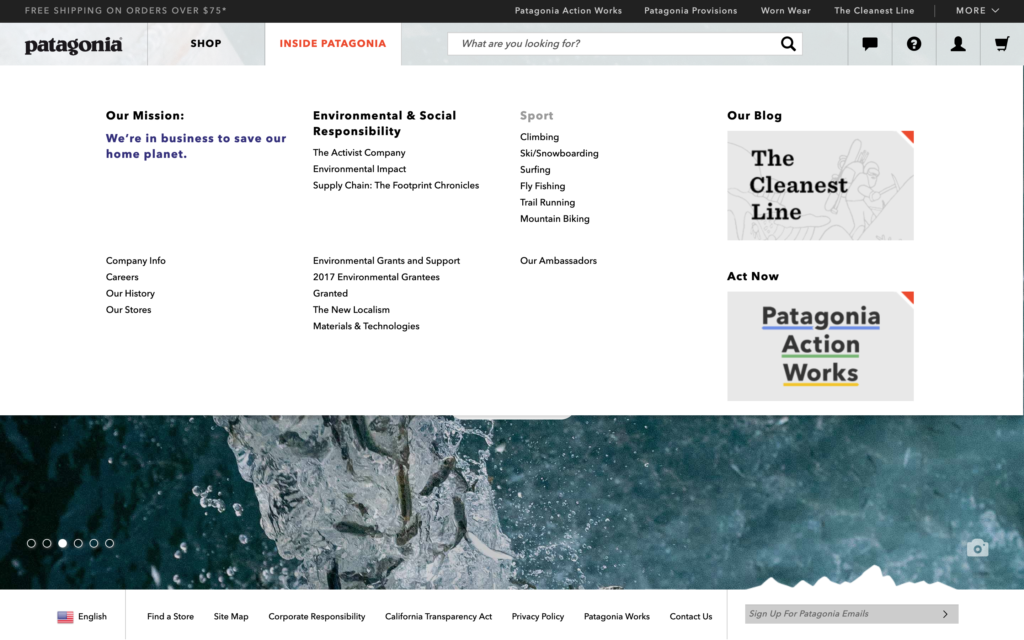
There’s a lot of action from brands on corporate social responsibility (CSR) because evolved consumers are increasingly rewarding brands that are more vocal when it comes to topical themes like sustainability, and a better understanding of the eco-system in which they operate.
From recycling packaging materials (Amazon recently started doing that in India), to working with partners (in the supply chain) that adhere to established practices in diversity, a lot is happening.
But there’s one brand that I hold as a torchbearer of CSR, and it doesn’t even retail in India, yet.
It’s the American outdoor clothing brand Patagonia. The most striking aspect of Patagonia is that they call themselves, in their mission, as ‘The Activist Company’! Their mission, literally, is ‘We’re in business to save our home planet’.
Now, corporate (parent) groups like HUL have website that puts their social consciousness up front. If you look at HUL’s website, the product list is a small part, amidst their efforts on sustainable living, including a specific section on Kodaikanal, for which they are usually criticized the most. But HUL’s website is not an e-commerce website – it is more like a corporate brochure.

Compare that to Patagonia. The website is an e-commerce engine where you can shop all their products.
And in that shop, they have, up front, amongst the 6 highlights in the carousel, one that talks of ‘a film about people, rivers, and the fight for the future of wild fish and the environment that supports them’.

You cannot buy anything in this tab, but it still is one of the 6 main highlights in the homepage! It’s almost akin to having this giant billboard inside their store… and it does not sell anything except a cause.
Beyond that, their relentless focus on their mission is all over their online shop front.
You’d expect ‘Inside Patagonia’ to be about their leadership team, company info etc. Of course, it is, but almost like an after-thought! Look at what precedes the basic company details!

The level of their environmental consciousness is unlike any other brand I have seen, so much that it is all over the place on their e-commerce shop-front where most brands focus exclusively on the ‘buyer’ and not necessarily the ‘conscious consumer’. For Patagonia, both those tags seem the same – they are perhaps looking at the conscious buyer as their target segment and that explains this sharp focus on their mission.

I don’t know if they are getting rewarded monetarily (in the market) for this specific focus, or if it can be attributed to their product quality and range (since I have never used their products or visited their stores, being in India). But this is a model I am in awe of, that a for-profit brand can go to this extent putting their values and beliefs so explicitly unlike most other brands that put it as just another page under ‘About Us’.
While reading about Patagonia, I also figured that they are a private company, and a ‘benefit corporation‘.

As per definition, in the United States, a benefit corporation is a type of for-profit corporate entity, that includes positive impact on society, workers, the community and the environment in addition to profit as its legally defined goals!
So, a benefit corporation’s directors and officers operate the business with the same authority and behavior as in a traditional corporation, but are required to consider the impact of their decisions not only on shareholders but also on employees, customers, the community, and local and global environment.
Patagonia founder Yvon Chouinard explains: “Benefit Corporation legislation creates the legal framework to enable mission-driven companies like Patagonia to stay mission-driven through succession, capital raises, and even changes in ownership, by institutionalizing the values, culture, processes, and high standards put in place by founding entrepreneurs.”
I don’t know if India has something similar to ‘benefit corporation’, but it is perhaps high time we created this model for the simple reason that we have the 2nd largest population on the planet.
